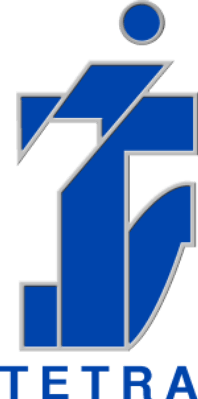What is Open-source Software?
The term open source refers to software whose source code — the medium in which programmers create and modify software — is freely available on the Internet; by contrast, the source code for proprietary commercial software is usually a closely guarded secret.
Open-source software is distributed under a variety of licensing terms, but almost all have two things in common: the software can be used without paying a license fee, and anyone can modify the software to add capabilities not envisaged by its originators.
What is a Proprietary Software?
Proprietary software refers to the type of software that is copyrighted and licensed in terms of its usage. Proprietary software is usually paid. That is, you will have to pay for its license and only then can you use it.
Proprietary software is not meant for any kind of collaboration. It is created solely to be used by the creator and other users who have paid for the license. Unlike Open-Source software, Proprietary software does not have open access. It can only be accessed by those who own it and those who have developed it.
Open-source software vs proprietary software
- Control: The idea alone that developers and programmers are allowed to examine and modify the source code as deemed necessary shouts aloud control. More control means more flexibility, which means non-programmers can also benefit from open collaboration. Proprietary software, on the contrary, restricts control only to the owner of the software.
- Security: Because anyone with the required knowledge can add or modify additional features to the program’s source code to make it work better, it allows better sustainability of the software as discrepancies in the software can be rectified and corrected repeatedly. As developers can work without any restrictions, it allows them to rectify errors that might have been missed by the original developers or publishers.
- Driver Support: Open-source software packages often have missing drivers which are natural when you have an open community of users with access to every single line of code. The software may include code modified by one or more individuals, each subject to different terms and conditions. The lack of formal support or sometimes the use of generic drivers can put the project at risk. Proprietary software means closed group support which means better performance.
- Usability: Unlike open-source projects, proprietary ones are typically designed keeping in mind a limited group of end-users with limited skills. They target a small-knit circle of end-users unlike projects accomplished within open-source communities. Users outside the programming community won’t even look at the source code let alone modify it.
- Opacity: The viewing restrictions barred the end-users from modifying the code let alone debugging it effectively with no control over possible workarounds. The internal structure of proprietary software is strictly closed-access meaning they lack transparency which makes it virtually impossible for users to even suggest modifications or optimizations to the software. Open source, on the other hand, promotes open collaboration which means lesser bugs and faster bug fixes with fewer complexities.
Open-source Software advantages
- You can adapt it to your necessities even from source code.
- All replicas or distribution is possible although you haven’t paid it.
- Free support because the same community that uses the software, frequently tend to answer questions, give advice, make forums and provide detailed documentation.
- Fewer errors and faster solutions. This is related to the previous point. Projects with open-source literally could have millions of people looking at it, using it, and getting better.
- For that reason, some experts think that open-source software is safer.
- It is universal.
Proprietary Software advantages
- Stability. This may be the most important advantage. Creator gives you software which it was probed and it is capable to do perfectly all things an action you saw before buying it.
- Reliability and warranty of 100% from creators.
- Proprietary software is unique. You won’t find it in any place different from the provider.
- Most compatibility in some cases.
Both Open-Source software and Proprietary software are different types of software, that differ in various categories. The main difference is that while the former is open for free use by anyone, the latter is copyrighted and has restricted access. While Open Source offers open collaboration, Proprietary software offers no collaboration. Open Source has flexibility whereas Proprietary software has restricted flexibility. While users of the former have the right to modify and distribute to anyone, the creators of the latter own later the rights to the source code and only those who have paid for the license of the software can use it.
